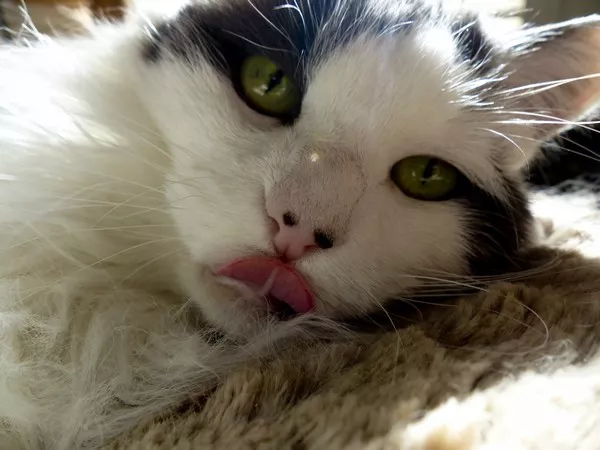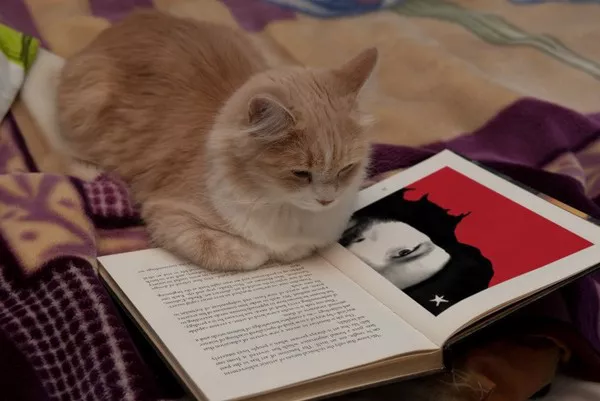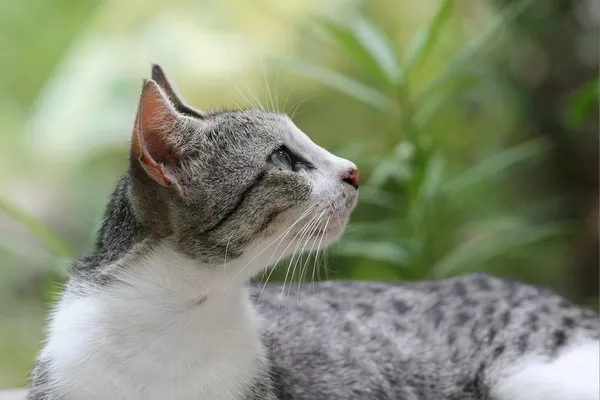Hydration plays a fundamental role in maintaining the health and well-being of cats. Unlike other animals, cats have unique hydration needs and drinking habits that stem from their origins as desert dwellers. This article explores what beverages are safe for cats, including water alternatives that can supplement their hydration in a safe way. Ensuring proper hydration is an essential aspect of responsible cat feeding, impacting everything from digestion to kidney function.
Why Hydration is Important for Cats
While cats may appear independent and low-maintenance, their health can be fragile, especially in terms of hydration. A cat’s body relies on proper hydration for essential bodily functions, including maintaining kidney health, aiding digestion, and regulating body temperature. Dehydration can lead to serious health problems, such as urinary tract infections, kidney disease, and constipation, all of which can severely impact a cat’s quality of life.
Cats naturally have a lower thirst drive than many other animals, which is why they often don’t drink as much water as they should. They get much of their water intake from their diet, particularly if they consume wet cat food. Still, ensuring that they have access to water or other safe hydrating options is essential in cat feeding.
The Primary Beverage for Cats: Water
Water is, without a doubt, the best and most essential beverage for cats. Unlike humans who may enjoy a variety of drinks, cats should ideally rely on water for the bulk of their hydration. Clean, fresh water helps flush out toxins, aids in digestion, and prevents dehydration. Encouraging your cat to drink more water is crucial for their health, especially if they consume dry food, which contains very little moisture.
However, some cats may not drink sufficient water due to personal preference, behavioral tendencies, or because they are naturally inclined to get their hydration from food. In these cases, introducing safe, supplementary beverages may help increase their overall fluid intake.
Safe Alternatives to Water
While water should be a cat’s main beverage, there are other liquids you can provide in moderation to ensure they stay hydrated. These alternatives can make drinking more appealing and may encourage a cat to drink additional fluids.
1. Cat Milk
Specially formulated cat milk, which is lactose-free, is a popular option for pet owners who want to give their cats a treat. Regular cow’s milk is often thought to be suitable for cats, but the majority of cats are lactose-intolerant and may experience digestive issues if given cow’s milk. Cat milk, available in pet stores, is made to be gentle on a cat’s stomach and does not contain lactose, making it safe and enjoyable for many cats.
It is important to give cat milk sparingly as it can be high in calories, which could contribute to weight gain if provided excessively. Cat milk can be offered as an occasional treat or supplement to their main hydration source.
2. Bone Broth
Bone broth can be a nutritious and hydrating option for cats if prepared correctly. Rich in nutrients, plain, low-sodium bone broth offers multiple health benefits and can be a great way to increase hydration. Bone broth contains collagen, which supports joint health, and amino acids like glycine, which aids in digestion and detoxification.
When preparing bone broth for your cat, avoid adding any seasonings, especially onion or garlic, as these are toxic to cats. Look for low-sodium or sodium-free broth options if purchasing from a store. Bone broth can be served slightly warmed, which many cats find appealing, or poured over dry cat food for added flavor and moisture.
3. Diluted Meat Broth
Diluted meat broth is another option to encourage hydration, but it is crucial to ensure it’s safe for cat feeding. Meat broth made from chicken, turkey, or beef without added seasonings can be an enticing hydrating alternative for cats. Similar to bone broth, meat broth should be low-sodium and free from any harmful additives like garlic, onion, or spices.
To prepare meat broth, cook the meat in water without seasonings, strain out the solids, and dilute it further with water before serving. This mild, flavored drink can be a treat that adds moisture to your cat’s diet, and it can be poured over dry cat food or offered in a bowl as an alternative beverage.
4. Specialized Cat Hydration Products
Some pet brands offer hydration products specifically designed to entice cats to drink more water. These products may include water enhancers or flavored waters made specifically for feline consumption. Formulated to be safe for cats, they can make water more appealing without adding harmful ingredients. Look for products that are low in sodium and free from artificial flavors or preservatives, and always follow the recommended serving size.
These specialized products can be helpful for cats who are particularly finicky or reluctant to drink plain water. While they shouldn’t replace water entirely, they can be a useful tool to boost hydration and can easily fit into your cat feeding routine.
Beverages to Avoid
Not all liquids are safe for cats, and some can even be harmful. Understanding which drinks are off-limits is crucial for maintaining your cat’s health and preventing any accidental exposure to toxic substances.
1. Cow’s Milk
Although it’s a popular stereotype that cats love milk, cow’s milk is generally not suitable for them. Most cats are lactose-intolerant and lack the enzyme necessary to break down lactose, the sugar found in milk. Drinking cow’s milk can lead to digestive discomfort, diarrhea, and bloating. If your cat loves milk, consider giving them lactose-free cat milk in moderation instead.
2. Sugary Drinks
Sugary drinks, including soda, juice, and flavored drinks, should never be given to cats. Cats are obligate carnivores and have no dietary need for sugar, which can lead to obesity, diabetes, and dental problems. Artificial sweeteners in some drinks can also be harmful and should be avoided in cat feeding practices.
3. Caffeinated Beverages
Caffeinated beverages like coffee, tea, and energy drinks are highly toxic to cats. Caffeine stimulates the nervous system and can cause symptoms such as restlessness, rapid breathing, heart palpitations, and even seizures. In severe cases, caffeine poisoning can be fatal. Be vigilant about keeping any caffeinated beverages out of reach of your cat.
4. Alcoholic Drinks
Alcohol is extremely dangerous for cats, even in small amounts. The effects of alcohol on a cat’s liver and brain are similar to those on humans, but cats are much smaller and more vulnerable. Symptoms of alcohol poisoning in cats can include disorientation, vomiting, seizures, and potentially life-threatening respiratory failure. Under no circumstances should alcohol be given to cats.
Benefits and Risks
Providing alternative drinks for cats can offer some benefits, especially for cats that may struggle with hydration. Offering alternatives such as bone broth or cat milk occasionally can enhance hydration and may make feeding time more enjoyable by adding variety. For cats that don’t drink enough water, these alternatives can be beneficial supplements.
However, there are risks associated with some alternative beverages. Cat milk, bone broth, and other alternatives should be given in moderation. Overuse can lead to weight gain, digestive upset, or nutrient imbalances. Always monitor your cat’s reaction to any new food or beverage and consult a veterinarian if you have concerns.
Tips for Encouraging Hydration
Keeping your cat well-hydrated is essential, and there are various strategies you can use to encourage your cat to drink more water, even if they are finicky.
1. Fresh Water
Always provide fresh, clean water for your cat. Stale water can discourage cats from drinking, so ensure you change the water daily and clean the bowl regularly. Using glass or stainless steel bowls, as opposed to plastic, can also help keep the water tasting fresh and free of odors.
2. Multiple Water Stations
Cats are more likely to drink water if it’s easily accessible. Setting up multiple water stations around your home allows your cat to drink whenever they feel the need, reducing the chance of dehydration. This is particularly important if you have multiple cats or a large home.
3. Fountain Water Bowls
Many cats are attracted to running water, which is why pet fountains can be a great investment. Fountain water bowls circulate water continuously, keeping it fresh and encouraging cats to drink more. Many cats find the sound and movement of flowing water appealing, which can help increase their water intake.
4. Wet Food
Including wet cat food in your cat’s diet is one of the most effective ways to ensure they get enough moisture. Wet cat food contains a high percentage of water and can be a great way to supplement their hydration. Some pet owners mix a small amount of water into the wet food to add even more moisture.
Conclusion
In conclusion, water remains the most essential beverage for cats, but safe alternatives can help encourage additional hydration. Cat feeding practices that include options like lactose-free cat milk, bone broth, and specialized hydration products can make drinking more enjoyable for cats. However, avoid beverages like cow’s milk, sugary drinks, caffeine, and alcohol, which pose significant health risks. By ensuring your cat has access to fresh water, considering safe drink alternatives, and incorporating wet food into their diet, you can help them maintain optimal hydration for a healthier life.
Related Topics



























